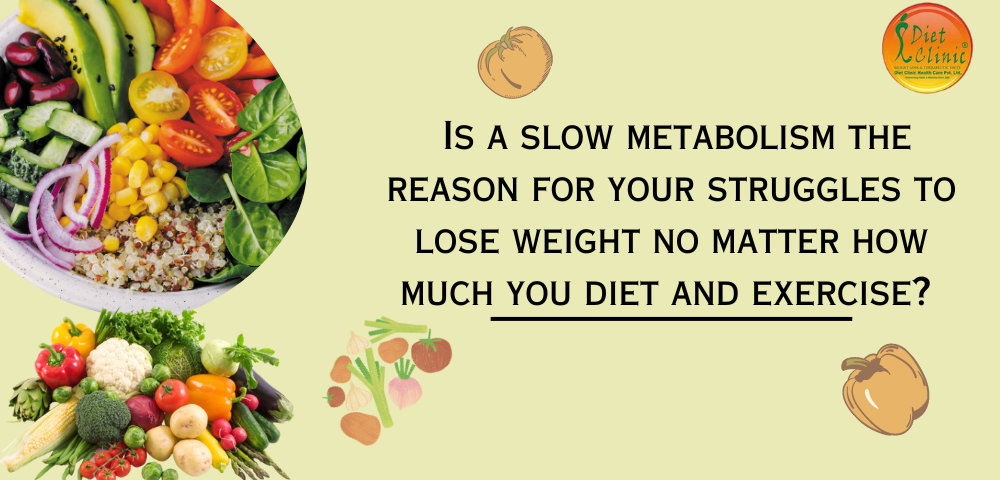
Dietician Sheela Seharawat
Is a slow metabolism the reason for your struggles to lose weight no matter how much you diet and exercise?
Have you been dieting and exercising but still find it difficult to lose weight? You may have been told that your slow metabolism is the reason for your struggles. While a slow metabolism can play a role in weight management, it's not the only factor. As a dietician, I often see clients who are frustrated with their weight loss progress and blame it solely on their metabolism. In this blog post, we'll discuss what metabolism is, how it affects weight management, and what you can do to optimize your metabolism for better weight loss results.
WHAT IS METABOLISM
Metabolism refers to the chemical processes that occur in your body to maintain life, including the breakdown of food into energy. Your metabolism is influenced by several factors, including age, sex, body composition, genetics, and lifestyle. As you age, your metabolism naturally slows down, which can make it more difficult to lose weight. However, lifestyle factors, such as physical activity, diet, and stress levels, also play a significant role in your metabolism.
How Does Metabolism Affect Weight Management?
Your metabolism affects weight management in several ways. It determines the number of calories you burn at rest, known as your basal metabolic rate (BMR). The higher your BMR, the more calories your body burns even when you're not active. However, many factors can lower your BMR, including age, a sedentary lifestyle, and a lack of muscle mass.
Additionally, your metabolism influences the number of calories you burn during physical activity. When you exercise, your body uses more energy to fuel your movements. However, if you have a slow metabolism, you may burn fewer calories during exercise than someone with a faster metabolism.
What Can You Do to Optimize Your Metabolism for Better Weight Loss Results?
If you're struggling to lose weight due to a slow metabolism, there are several things you can do to optimize it for better weight loss results.
1. Eat a Balanced Diet: Eating a balanced diet that includes protein, carbohydrates, and healthy fats can help support your metabolism. Additionally, avoiding processed foods and sugary drinks can prevent blood sugar spikes and crashes that can negatively affect your metabolism.
2. Build Muscle: Strength training exercises can help build muscle, which can boost your BMR and help you burn more calories at rest.
3. Stay Active: Regular physical activity, such as brisk walking, cycling, or swimming, can help increase your metabolism and promote weight loss.
4. Get Enough Sleep: A lack of sleep can negatively affect your metabolism and increase your hunger and cravings. Aim for 7-8 hours of quality sleep each night to support your metabolism and weight loss efforts.
5. Manage Stress: Chronic stress can negatively affect your metabolism and lead to weight gain. Practice stress-reducing techniques, such as deep breathing, meditation, or yoga, to manage stress and support your metabolism.
In conclusion, a slow metabolism is not the only reason for struggles with weight loss. While it can play a role, several lifestyle factors also influence your metabolism and weight management. By making healthy lifestyle choices, such as eating a balanced diet, building muscle, staying active, getting enough sleep, and managing stress, you can optimize your metabolism and achieve your weight loss goals.










